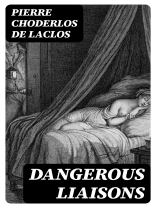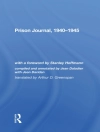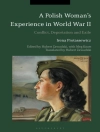In ‘Dangerous Liaisons, ‘ Pierre Choderlos de Laclos presents a masterful epistolary novel that delves into the intricate web of seduction, manipulation, and moral ambiguity among the French aristocracy of the late 18th century. The narrative unfolds through a series of letters exchanged by the cunning Marquise de Merteuil and the dissolute Vicomte de Valmont, whose games of love and treachery expose the darker sides of human nature and the societal constraints of their time. Laclos employs a sharp, revealing prose style that encapsulates the elegance and hypocrisy of aristocratic life, simultaneously offering a critique of the libertine values that pervade their interactions. The book stands as a powerful commentary on gender politics, virtue, and the consequences of deceit, resonating well beyond its historical context. Pierre Choderlos de Laclos, a French army officer and intellectual, penned this provocative novel in 1782, drawing inspiration from his own observations of the elite society around him. Trained in the art of rhetoric and experienced in the intricacies of social maneuvering, Laclos infused his characters with a psychological depth that reflects both personal and societal conflicts. His work emerged during a period of Enlightenment thought, where questions of morality, freedom, and human behavior were increasingly under scrutiny, setting the stage for modern realism. ‘Dangerous Liaisons’ is a timeless masterpiece that continues to be relevant in its exploration of power dynamics and human relationships. It is a compelling read for those intrigued by psychological complexity and the moral dilemmas that arise from desire and manipulation. Scholars, students, and casual readers alike will find within its pages not only a thrilling narrative but also a rich source for understanding the complexities of human behavior and societal structures.
عن المؤلف
Pierre Choderlos de Laclos (1741–1803) was a French officer and novelist, most renowned for his epistolary novel, ‘Dangerous Liaisons’ (1782), a masterful exploration of the decadence of the French aristocracy before the Revolution. Born in Amiens, Laclos pursued a military career before venturing into writing. While his literary output was limited, ‘Dangerous Liaisons’ had an immediate and scandalous success, becoming a seminal work in French literature. The novel’s portrayal of manipulative liaisons and moral cynicism was groundbreaking, and it remains a standard against which tales of psychological intrigue and societal critique are measured. While known principally for this singular work, Laclos’s influence extends to his adept use of the epistolary form, commanding narrative structure, and deft character development. His exploration of themes such as libertinism, power dynamics, and the role of women in society provided a prescient analysis of changing social mores. Despite the infamy and the moral outrage it provoked, ‘Dangerous Liaisons’ continues to captivate scholars and readers alike, inviting ongoing interpretations and adaptations across various media. Laclos’s sharp insight into human nature and his critique of aristocratic frivolity offer a grim foreshadowing of the impending revolution. His legacy, encompassed largely by this single novel, persists as a touchstone for those examining the complexities of power, seduction, and morality.












